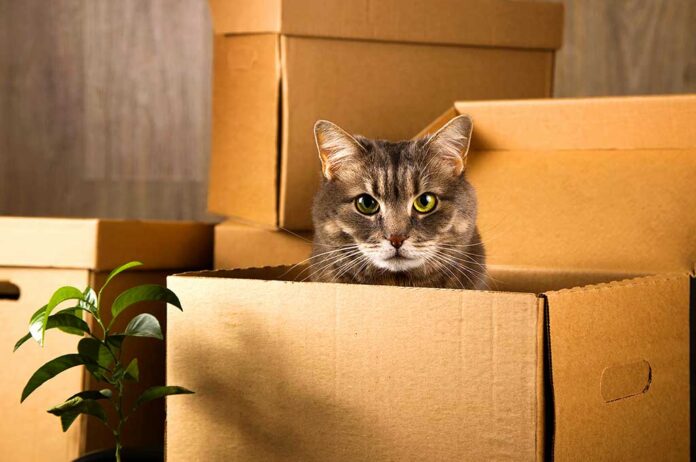Recently I purchased my first house and began the process of moving my belongings and furry children to their new home from the apartment that they had spent the last eight years living at.
Because Clive (a really smug, cross-eyed Siamese) and Wharf (an odd cross between a bat and Chiweenie) had spent such a significant amount of time inhabiting one home, it was important for me to prepare them for their new environment so that the transition would be as smooth as possible. Moving is stressful for everyone involved and if not done in a thoughtful manner can lead to behavior issues in pets, some things to keep in mind:
Prepare the existing environment early. I started bringing boxes into the apartment about four weeks prior to our move date. I set up a couple of boxes in the corner of the living room, the office, and the bedroom. As packing progressed, more boxes would appear as belongings would slowly disappear. This allowed for Clive and Wharf to get used to changes within their environment.
Keep things the same will reduce your pet’s stress levels. During a relocation, try to keep things as normal as possible for your pet leading up to and directly after moving. This is not an ideal time to switch diets or litter. Keep food dishes, bedding, and toys out until the last possible second. Then set up your pet’s belongings in their new home prior to introducing them to the space so that the area smells familiar.
Make plans for your pet to be elsewhere on moving day. Not only does this keep them from being under foot or escaping while the front door is open, but it will also reduce their stress level being away from all the noise and disruption. Wharf got to go on an extended play date with two of her doggie friends while we were packing up and unloading the U-Haul. A day board at a boarding facility is a great option for cats. In my case, since I knew Clive gets stressed easily by car rides, I chose to confine him to the quietness of the home office with all his essentials and a window view to distract him.
Get a little extra help from medications. Anti-anxiety medication such as gabapentin or trazodone prescribed by your veterinarian can greatly aid your pet in having a successful move. Over the counter calming pheromone sprays such as Feliway for cats and Adaptil for dogs can also be beneficial prior and after moving.
BONUS POST MOVE TIP: Don’t forget to change your pet’s identification tags and microchip contact information to your new address! In the event that your pet bolts from their new environment during the acclimation time, you will want to make sure a good samaritan or a veterinary clinic/shelter can contact you to return your pet safely home.






















